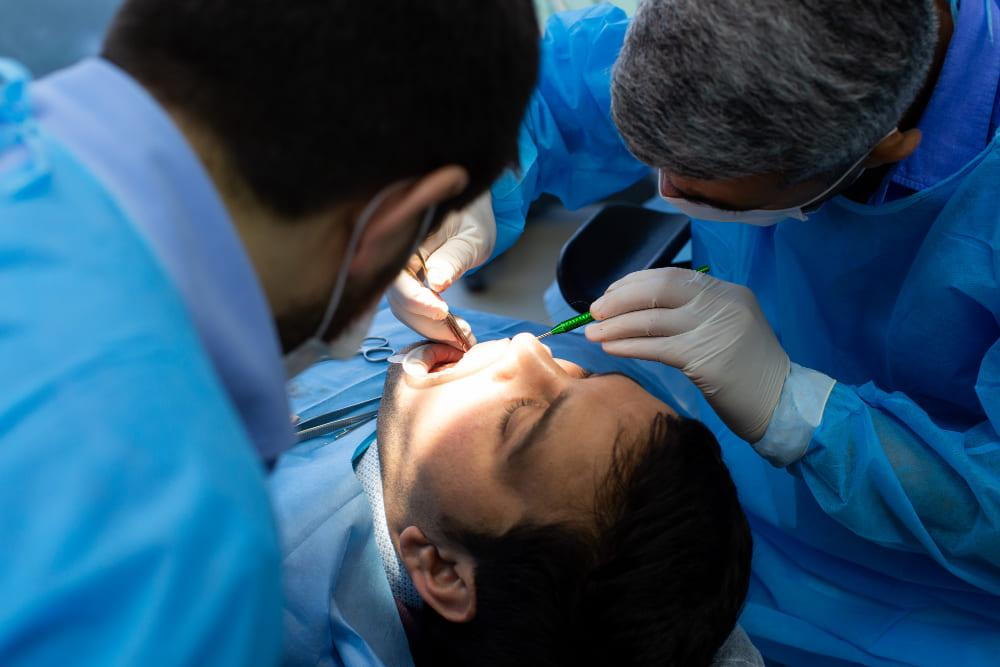
If you or someone you know is recommended Orthognathic Surgery by a dentist or dental surgeon, you might be wondering what it's all about. In this blog post, we'll walk you through the orthognathic surgery process, explaining what happens before, during, and after the procedure.
What is Orthognathic Surgery?
Orthognathic surgery is a special surgery that fixes problems with the jaw and face bones. It can help people who have trouble biting, chewing, or speaking because their jaws don't line up right. Sometimes, it also helps improve how a person's face looks.
Before the Orthognathic Surgery
The journey of orthognathic surgery starts long before you enter the operating room. Here's what you can expect in the months leading up to the surgery:
- Meeting with Doctors: You'll meet with different doctors, including an orthodontist and an oral surgeon. They'll examine your teeth, jaw, and face to understand your unique situation.
- Taking Pictures and X-rays: The doctors will take many pictures and x-rays of your face and jaw. These help them plan your orthognathic surgery.
- Making a Plan: Your doctors will work together to create an orthognathic surgery plan just for you. They might use special computer programs to show you how your face might look after the surgery.
- Braces: Most people need to wear braces before the surgery. This helps move your teeth into the right position. You might wear these braces for 12 to 18 months before the surgery.
- Health Check: Your doctors will make sure you're healthy enough for the surgery. They might ask you to have some blood tests or other health checks.
- Getting Ready: In the weeks before your surgery, your doctors will give you instructions on how to prepare. This might include what to eat, what medicines to take or stop taking, and what to bring to the hospital.
During the Orthognathic Surgery
On the day of your orthognathic surgery, here's what typically happens:
- Anesthesia: You'll be given medicine to make you sleep during the surgery.
- The Surgery: The oral surgeon will make cuts inside your mouth to reach your jaw bones. Then, they'll move the bones into the right position. Sometimes, they might add small plates, screws, or wires to hold the bones in place.
- Closing Up: After moving the bones, the surgeon will close the cuts with stitches that dissolve on their own.
After the Orthognathic Surgery
When you wake up after the orthognathic surgery, you'll be in a recovery room. Here's what you can expect in the days, weeks, and months after the surgery:
- Hospital Stay: Most people stay in the hospital for 1 to 4 days after the surgery.
- Swelling and Discomfort: Your face might feel swollen and sore but it will become normal after some time.
- Eating: At first, you'll only be able to drink liquids and eat very soft foods. Your doctor will tell you when you can start eating regular food again.
- Rest: You'll need to rest a lot in the first few weeks. Most people take 2 to 4 weeks off work or school.
- Follow-up Visits: You'll need to see your doctors regularly to make sure you're healing well.
- Braces Again: You might need to wear braces again for a few months after the surgery to help your teeth settle into their new positions.
- Final Results: While you'll see some changes right away, it can take up to a year for all the swelling to go down and for you to see the final results of your orthognathic surgery.
With the right care and support, orthognathic surgery can lead to big improvements in your life. Whether you're considering this surgery for yourself or supporting someone who is recommended the surgery can help make the experience less scary and more manageable.
